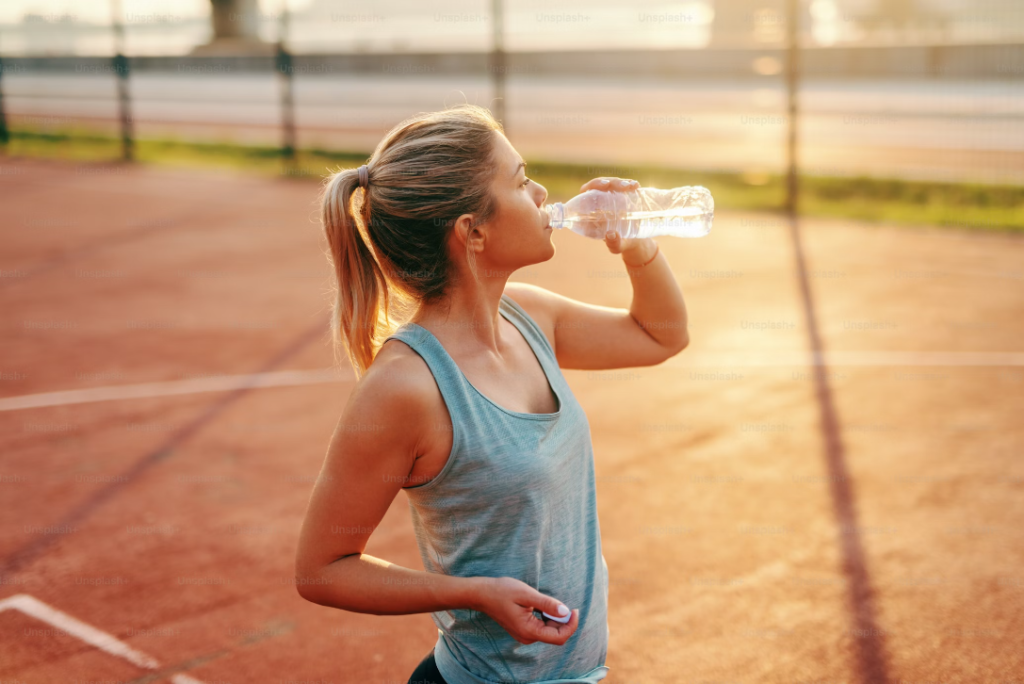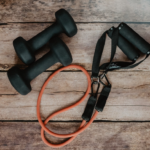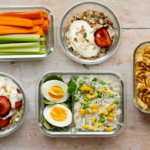Staying hydrated during workouts is essential for maintaining energy levels, improving performance, and preventing dehydration. Here are some tips and tricks to help you stay properly hydrated:
1. Hydrate Before Your Workout
- Drink water ahead of time: Make sure you’re well-hydrated before starting your workout by drinking water throughout the day. Aim for 16–20 oz (about 500 ml) of water 2–3 hours before exercise.
- Have a top-up: About 20–30 minutes before your workout, drink another 8–10 oz (250 ml) of water.
2. Sip Water During Your Workout
- Listen to your body: While exercising, aim to drink about 7–10 oz (200–300 ml) of water every 10–20 minutes. However, this can vary depending on the intensity of your workout, how much you sweat, and the temperature of your environment.
- Bring a water bottle: Keep a water bottle with you during workouts so you can sip water throughout, especially during breaks.
3. Use Electrolytes for Intense Workouts
- Consider sports drinks: If you’re working out for more than an hour or doing high-intensity activities, water alone might not be enough. Consider a sports drink that contains electrolytes (sodium, potassium, magnesium) to replenish what you lose through sweat.
- DIY electrolyte drinks: You can make your own by mixing water with a pinch of salt, a little honey, and a splash of lemon juice.
4. Hydrate Based on Sweat Loss
- Weigh yourself before and after workouts: Weighing yourself can help you gauge how much water you’ve lost through sweat. For every pound (0.45 kg) lost during your workout, drink about 16–20 oz (500–600 ml) of water.
- Color of urine: Monitor the color of your urine to assess hydration. Light yellow means you’re hydrated, while dark yellow or amber suggests you need to drink more.
5. Cool Down with Fluids
- Rehydrate after exercise: After your workout, it’s crucial to rehydrate. Drink about 16–24 oz (500–750 ml) of water for every pound (0.45 kg) of body weight lost.
- Include electrolytes and carbs: Post-workout hydration can also include electrolyte-rich drinks or snacks to help restore balance and aid recovery.
6. Hydrate with Hydrating Foods
- Eat water-rich fruits and vegetables: Foods like watermelon, cucumber, oranges, and strawberries have high water content and can help keep you hydrated.
- Include soups and smoothies: Soups and smoothies made with fruits, vegetables, and yogurt are also great for post-workout hydration.
7. Adjust Hydration to Climate
- Hot or humid weather: Increase your water intake when exercising in hot or humid conditions since you’ll sweat more.
- Cold weather: You might not feel as thirsty when it’s cold, but you still need to stay hydrated. Keep sipping water even if you don’t feel very hot.
8. Avoid Dehydrating Drinks
- Limit caffeine and alcohol: Drinks like coffee, tea, and alcohol can have a diuretic effect, increasing urine output and potentially leading to dehydration. Stick to water or sports drinks when focusing on hydration.
9. Personalize Your Hydration Strategy
- Know your body’s needs: Each person’s hydration needs differ based on weight, sweat rate, and workout intensity. Tailor your water and electrolyte intake to what works best for you.
10. Use a Reusable Water Bottle with Markings
- Track your water intake: Get a water bottle with markings that show how much you’ve drunk throughout the day to ensure you’re meeting your hydration goals.
By following these tips, you can stay hydrated, boost your workout performance, and prevent dehydration during exercise.
Additional Tips:
- Carry a Water Bottle: Keep a water bottle with you during your workout to make it easy to stay hydrated.
- Choose the Right Sports Drink: Look for a sports drink with a balanced electrolyte mix, such as sodium and potassium.
- Consider Your Sweat Rate: If you sweat heavily, you may need to drink more fluids to compensate.
- Avoid Excessive Caffeine and Alcohol: These can contribute to dehydration.
- Eat Hydrating Foods Throughout the Day: Incorporate fruits, vegetables, and other hydrating foods into your daily diet.



